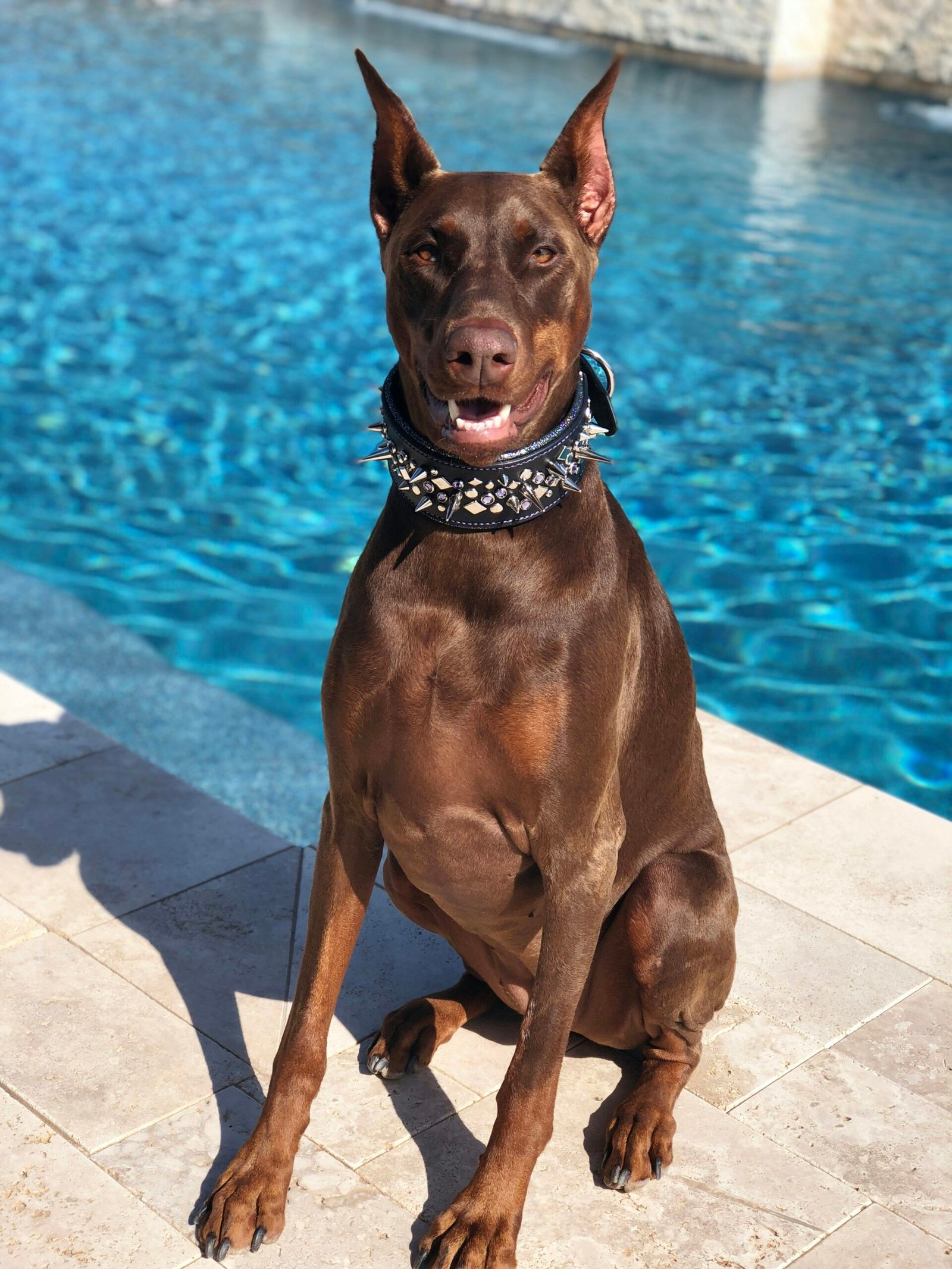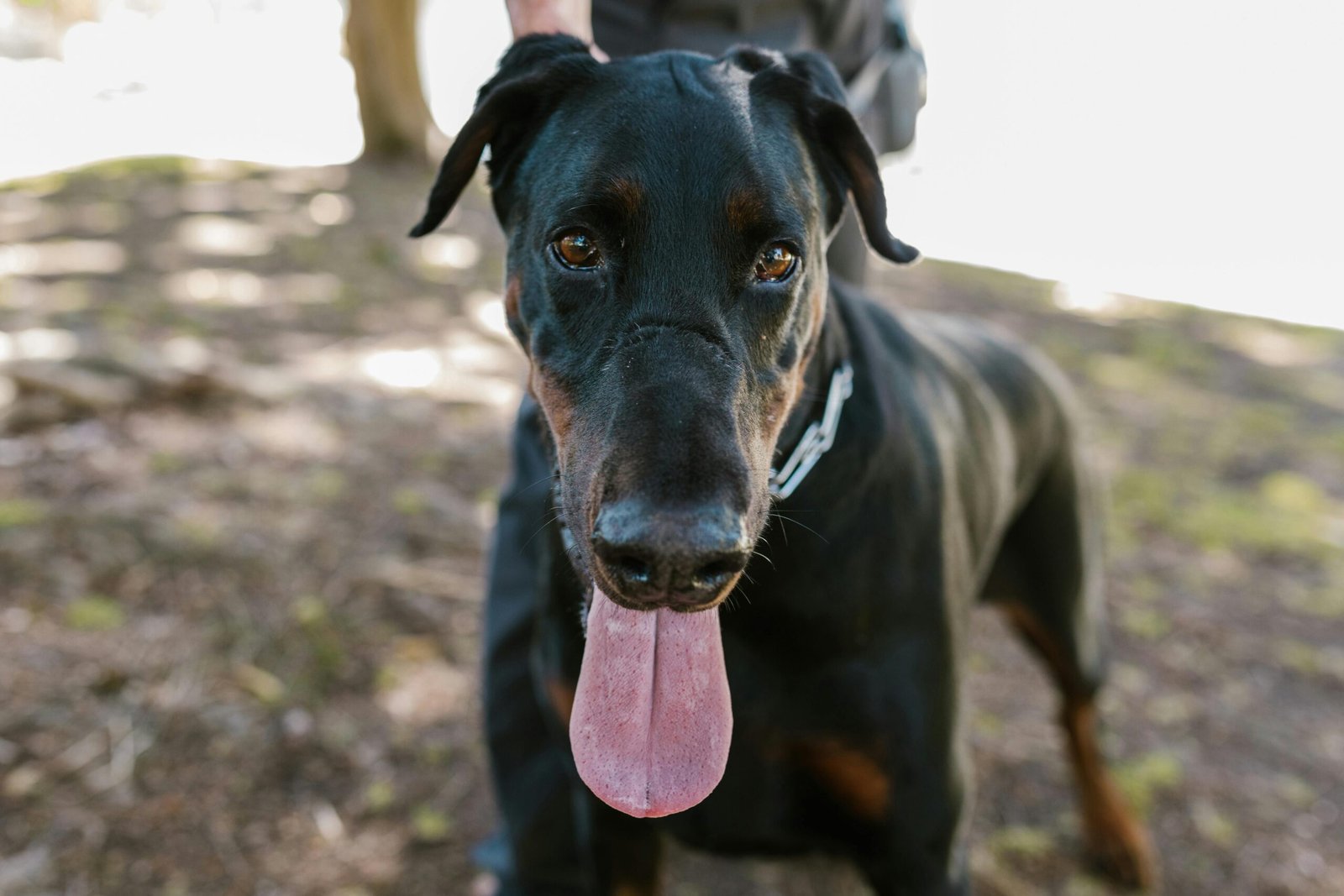
This image is property of images.unsplash.com.
Are King Dobermans Prone to Specific Health Issues?
King Dobermans, like all dog breeds, are prone to certain health issues that owners should be aware of. While they are generally a healthy breed, it is important to understand the specific health concerns that can affect them. By being proactive and knowledgeable about these issues, you can help ensure that your King Doberman stays happy and healthy for years to come.
Genetic Health Conditions to Watch Out for
One of the key health considerations for King Dobermans is their predisposition to certain genetic health conditions. This breed is known to be at higher risk for conditions such as hip dysplasia, dilated cardiomyopathy, and Von Willebrand’s disease. Regular health screenings and genetic testing can help identify these issues early on, allowing for prompt treatment and management.
Common Health Issues in King Dobermans
In addition to genetic health conditions, King Dobermans may also be prone to common health problems that can affect any dog. These may include ear infections, allergies, and dental issues. Proper grooming, regular check-ups with your veterinarian, and a healthy diet can all help prevent and manage these issues in your King Doberman.
How to Maintain a Healthy Diet for Your King Doberman
A nutritious diet is essential for the health and well-being of your King Doberman. Providing your dog with a balanced diet that meets their nutritional needs can help prevent health issues and keep them at a healthy weight. Here are some key tips for maintaining a healthy diet for your King Doberman.
Choosing the Right Food for Your King Doberman
When selecting food for your King Doberman, opt for high-quality dog food that is formulated for their specific breed and size. Look for products that list meat as the first ingredient and avoid foods that contain artificial additives or fillers. Remember to consult with your veterinarian to determine the best diet for your individual dog.
Feeding Schedule and Portion Control
Establish a consistent feeding schedule for your King Doberman and stick to it. Divide their daily food intake into two or three meals to help prevent bloating and promote healthy digestion. Monitor their portion sizes based on their activity level, age, and size to prevent overfeeding and obesity.
Avoiding Harmful Foods
Some human foods can be toxic to dogs and should be avoided in your King Doberman’s diet. These include chocolate, grapes, onions, and xylitol. Be mindful of what your dog has access to and keep products containing harmful substances out of reach to prevent accidental ingestion.
Importance of Regular Exercise for Your King Doberman
Just like humans, dogs need regular exercise to stay healthy and maintain a proper weight. Regular physical activity is important for the overall well-being of your King Doberman and can help prevent obesity and behavioral issues. Here are some tips for incorporating exercise into your King Doberman’s routine.
Daily Exercise Requirements
King Dobermans are an active and energetic breed that requires daily exercise to stay healthy and happy. Aim for at least 30 minutes to an hour of physical activity each day, depending on your dog’s age, size, and energy level. This can include walks, runs, playtime, and interactive games to stimulate both their mind and body.
Mental Stimulation
In addition to physical exercise, mental stimulation is important for the overall health of your King Doberman. Engage your dog in activities that challenge their mind, such as puzzle toys, training sessions, and interactive play. This can help prevent boredom, anxiety, and destructive behavior while keeping your dog mentally sharp.
Outdoor Safety
When exercising your King Doberman outdoors, it is important to ensure their safety at all times. Keep them on a leash in public areas, use a fenced-in yard for off-leash play, and provide plenty of water and shade on hot days. Be mindful of potential hazards such as toxic plants, sharp objects, and aggressive animals to prevent injuries.
Grooming Tips for Your King Doberman
Proper grooming is essential for the health and cleanliness of your King Doberman. Regular grooming not only helps maintain their appearance but also prevents skin issues, matting, and infections. Here are some key grooming tips to keep your King Doberman looking and feeling their best.
Brushing and Bathing
Brush your King Doberman’s coat regularly to remove loose fur, dirt, and debris. Use a soft-bristle brush or grooming mitt to distribute natural oils and prevent tangles. Bathe your dog as needed, usually every 6-8 weeks, using a dog-safe shampoo to keep their skin and coat clean and healthy.
Nail Trimming and Ear Cleaning
Trim your King Doberman’s nails every 2-4 weeks to prevent overgrowth and discomfort. If you are unsure how to trim their nails, consult with a professional groomer or veterinarian for guidance. Clean your dog’s ears weekly with a gentle ear cleaning solution to prevent wax buildup and infections.
Dental Care
Maintaining your King Doberman’s dental health is crucial for their overall well-being. Brush their teeth regularly with a dog-specific toothpaste and toothbrush to prevent plaque, tartar, and gum disease. Provide dental chews, toys, and treats to help keep their teeth clean and reduce bad breath.

This image is property of images.unsplash.com.
Veterinary Care and Regular Health Check-Ups
Regular veterinary care is essential for monitoring the health of your King Doberman and catching potential issues early on. Routine examinations, vaccinations, and preventative treatments can help ensure that your dog stays healthy and happy throughout their life. Here are some key considerations for veterinary care for your King Doberman.
Vaccinations and Preventative Medications
Keeping your King Doberman up to date on vaccinations and preventative medications is crucial for protecting them from common diseases and parasites. Consult with your veterinarian to establish a vaccination schedule that meets your dog’s individual needs and lifestyle. Administer flea, tick, and heartworm preventatives as recommended.
Routine Health Check-Ups
Schedule regular health check-ups with your veterinarian to monitor your King Doberman’s overall health and address any concerns. These visits typically include a physical examination, parasite screening, and discussion of your dog’s diet, exercise, and behavior. Be proactive in seeking veterinary care if you notice any changes in your dog’s health or behavior.
Emergency Preparedness
In case of a medical emergency, it is important to be prepared and know what steps to take to ensure the safety and well-being of your King Doberman. Keep a first-aid kit for dogs on hand with essentials such as bandages, gauze, and antiseptic wipes. Know the location of the nearest emergency veterinary clinic and have their contact information readily available.
Conclusion
Taking care of a King Doberman involves being proactive about their health and well-being. By understanding the specific health considerations for this breed and implementing proper care routines, you can help ensure that your dog lives a long, happy, and healthy life. Remember to prioritize a nutritious diet, regular exercise, proper grooming, veterinary care, and emergency preparedness to keep your King Doberman in optimal health. Your furry companion will thank you for the love and attention you give them!



